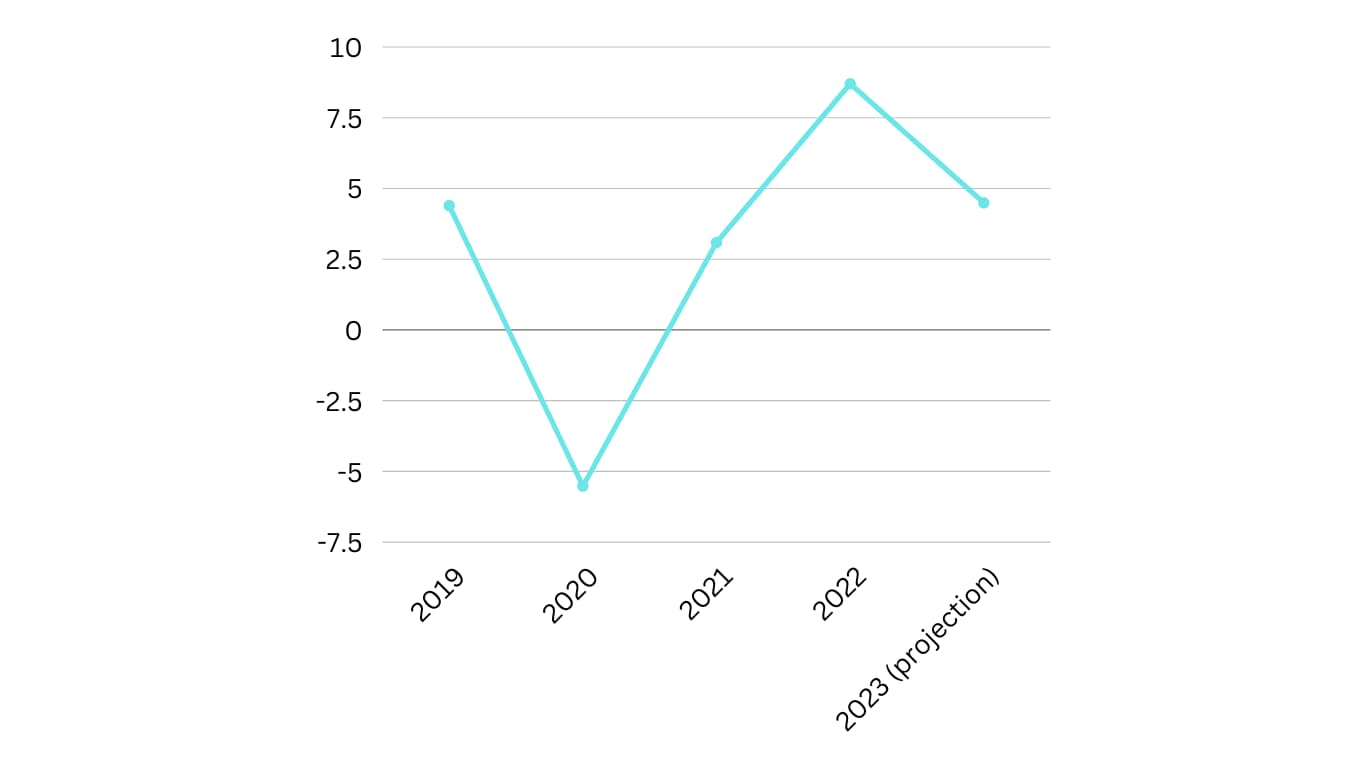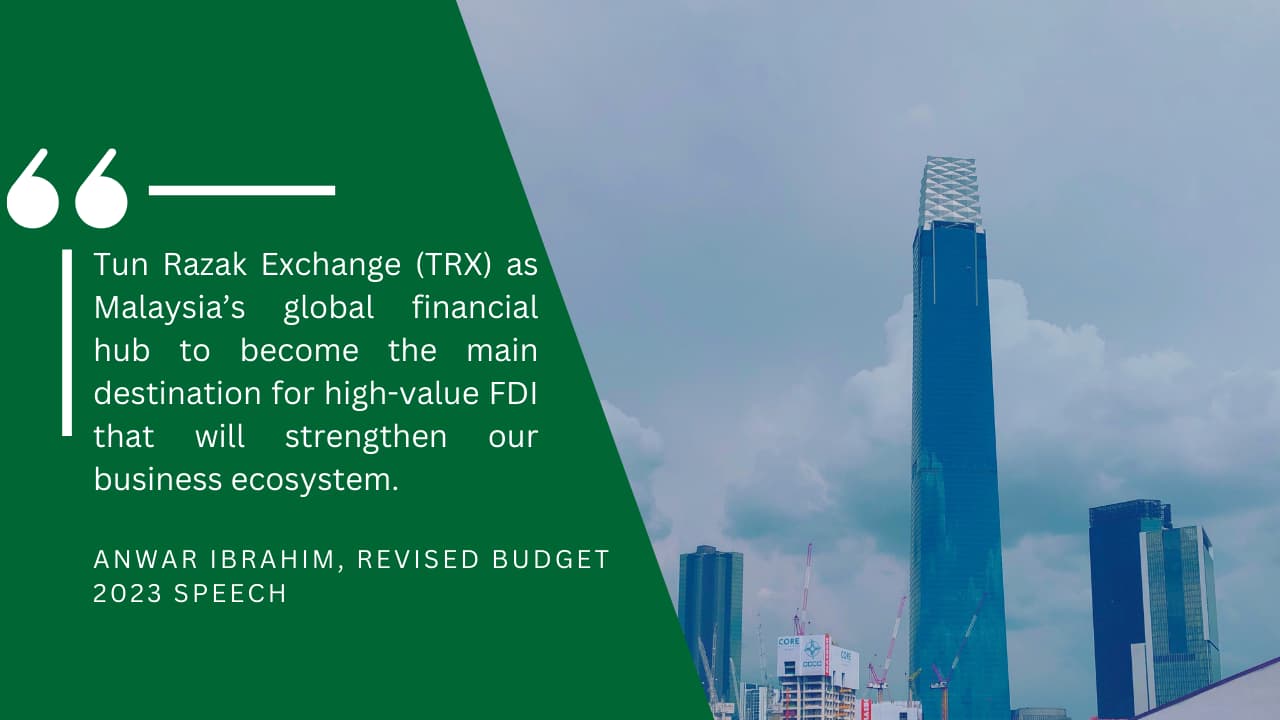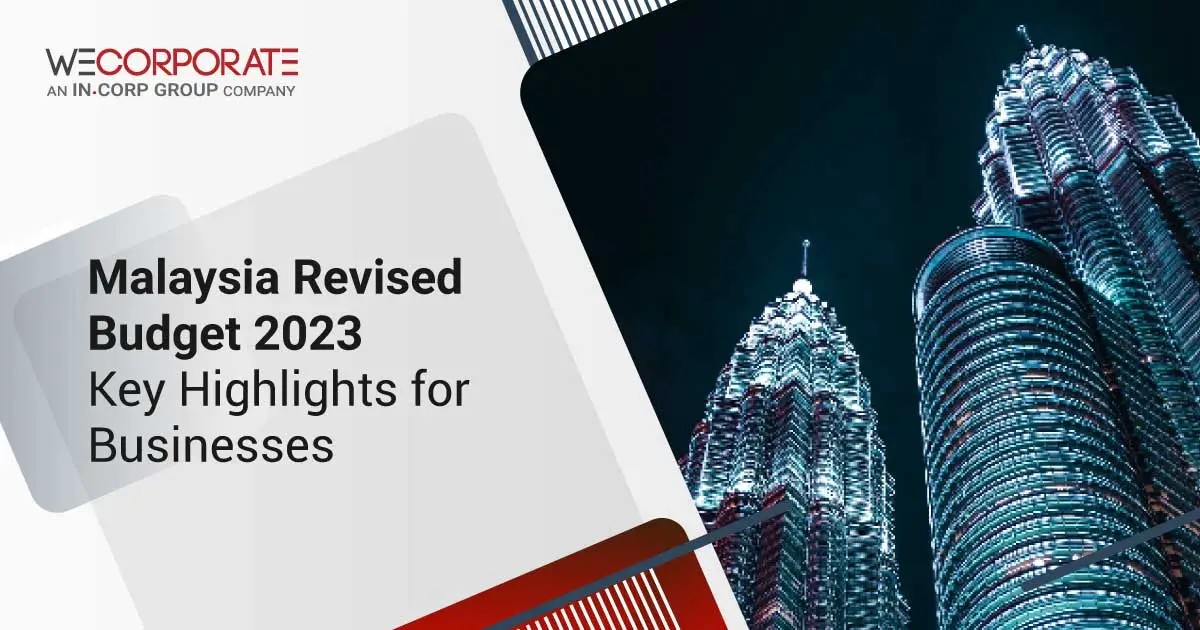Malaysia Revised Budget 2023, themed “Building Malaysia Madani,” is expected to bring a significant impact on the country’s economic growth. While the budget aims to address the economic challenges faced by the rakyat, it also benefits the businesses in Malaysia. The revised 2023 Budget for Malaysia aims to establish the Malaysia MADANI Development framework, with a focus on 12 main thrusts under three pillars: inclusive and sustainable economic growth, institutional reforms and good governance to restore confidence, and social justice to bridge inequality. The budget highlights several initiatives aimed at supporting businesses, particularly small and medium-sized enterprises (SMEs), to promote sustainable economic growth.
In the revised Budget 2023, there will be an allocation of RM388.1 billion, which includes RM289.1 billion for operating expenditure, RM99 billion for development expenditure, and RM2 billion for contingency savings. In this article, we will explore the key highlights of the Malaysia Budget 2023 that benefit businesses in Malaysia and discuss how these initiatives can contribute to the country’s economic progress.
Table of Contents
Summary of key financials
Global commodity prices and supply chain disruptions due to the Russia-Ukraine war are putting pressure on the inflation rate. The International Monetary Fund (IMF) forecasts a slower global economic growth rate of 2.9% in 2023, compared to 3.4% in the previous year, with global trade projected to slow down by 2.4%, compared to 5.4% in 2022. Malaysia’s GDP grew by 8.7% in 2022 due to the low base of 2021 GDP following the impact of Covid-19.

Revised Budget 2023 for SMEs
- MSMEs’ rate on taxable income for the first RM150,000 will be reduced from 17% to 15%.
- RM50 million will be provided to build and upgrade 3,000 stalls and kiosks for small hawkers at key locations across the country.
- RM176 million will be provided to upgrade business premises and facilities under MARA, DBKL, PUNB, and UDA.
- Government agencies will provide financing facilities and guarantees for MSME entrepreneurs worth up to RM40 billion.
- Micro entrepreneurs and small businesses will have access to financing through agencies such as Bank Negara Malaysia (BNM), BSN, and TEKUN with available funds totaling RM1.7 billion. RM300 million is allocated to support micro-businesses owned by women and youth entrepreneurs.
- BSN is providing more than RM1 billion with a focus on MSMEs and hawkers.
- TEKUN is providing RM330 million, including RM10 million to support underprivileged youth to generate income through business by providing capital to venture into delivery services using motorcycles.
- The Government will fund driving test fees for B40 youth for class B2 motorcycle licenses, as well as taxi, bus, and e-hailing licenses.
- Bank Negara Malaysia (BNM) will provide almost RM10 billion to reduce SMEs’ financial burden and encourage their business development.
- Syarikat Jaminan Pembiayaan Perniagaan (SJPP) will guarantee up to RM20 billion in SME loans where key sectors such as high technology, agriculture, and manufacturing are provided with a government guarantee of up to 90%. Guarantees will also be expanded to financing by non-banking financial institutions such as credit leasing companies and cooperatives to specifically benefit small businesses.

Revised Budget 2023 for Businesses
1. The Government will continue to promote green practices in business operations.
- BNM will provide a financing facility of up to RM2 billion to support sustainable technology startups and assist SMEs in implementing low-carbon practices.
- Khazanah will provide RM150 million to encourage the development of environmentally friendly projects, including supporting the carbon market and reforestation.
- The Green Technology Financing Scheme (GTFS) will be enhanced with the guarantee value increased to RM3 billion until 2025.
2. Stimulating Investment in High-Technology Sectors:
- Invest Malaysia Council and National Committee on Investment (NCI) will expedite approvals for high-potential investment projects.
- PEMUDAH will be empowered to enhance the investment climate and business landscape.
- The Government will reduce bureaucracy and incentivise Local Councils to accelerate investment processes.
3. New Industrial Master Plan (NIMP) 2030 to be introduced in Q3 2023:
- Investment promotion agencies and incentives will be restructured towards tiered tax rates based on outcomes such as high-value job creation, embedding local firms into supply chains, and creating new industrial clusters.
- Incentive monitoring for investments will be strengthened to maximise expected benefits.
4. Potential in Electrical and Electronics (E&E) and Aerospace Sectors:
- Tax incentives given to manufacturing companies that relocate to Malaysia are extended, and tax rates of 15% for C-Suite extended until 2024 to attract companies affected by Covid-19.
- Income tax incentives and investment tax allowances for the aerospace sector extended until 31 December 2025.
5. Bank Pembangunan Malaysia Bhd has allocated up to RM6 billion for strategic financing, with a focus on promoting sustainability and automation.
6. RM80 million is allocated to improve the sustainability of the oil palm industry and counter anti-palm oil campaigns.
Related read: Starting A Business in Malaysia Post Pandemic »
Incentives for Job Providers
- SOCSO is to provide an RM600 monthly incentive for three months for employers who hire TVET graduates, with RM45 million allocated for this purpose.
- SOCSO is to provide incentives for employers to hire vulnerable groups, such as persons with disabilities, ex-convicts, the homeless, and the chronically unemployed, for up to RM600 monthly for up to three months.
- The Government will cover up to RM4,000 in training fees for gig workers to undergo upskilling programs and PERKESO will provide an allowance of RM300 for three months as replacement income for active gig workers undergoing training programs, with RM40 million allocated to benefit 30,000 gig workers.
- HRDCorp will use a fund of RM1 billion to implement skills training programs for employees of registered employers who have accumulated levies.
- The Government will provide RM50 million in matching grants to encourage automation in the plantation sector using robotics and AI that can employ skilled local workers.
- To support women returning to work after childbirth, SOCSO will amend its Act to allow for a grant equal to 80% of the insured employee’s salary, with a total fund of RM290 million per year.
Related Read: Employment Injury Scheme Under Socso »
Revised Budget 2023 for Tourism Malaysia
The Government’s initiatives to boost the tourism industry include:
- Allocating RM250 million for tourism promotion, which includes RM115 million in matching grants to collaborate with the tourism and culture industry.
- Providing matching grants to encourage tourism promotional activities and organisation of major events such as international sports and cultural events.
- Using matching grants to promote charter flights to Malaysia.
Revised Budget 2023 for the Rakyat
- Electricity tariffs are maintained for domestic users and SMEs but increased for large companies except for the food and agriculture sectors.
- No plans to implement wide-based consumption taxes such as GST due to the current economic situation.
- Introduction of Luxury Goods Tax with limit according to the type of luxury good.
- Government to study introduction of Capital Gains Tax for disposal of unlisted shares by companies in 2024.
- Excise duty to be imposed on liquid or gel products containing nicotine used for e-cigarettes and vapes. Half of the collected duty will be reallocated to the Ministry of Health to improve health services.
Related Read: Malaysia Budget 2024 Infographic

Niresh Kaur is a content development manager who writes for WeCorporate. She mainly writes legal articles, as well as analytical content that serves entrepreneurs with insights on the business scene in the APAC region.
